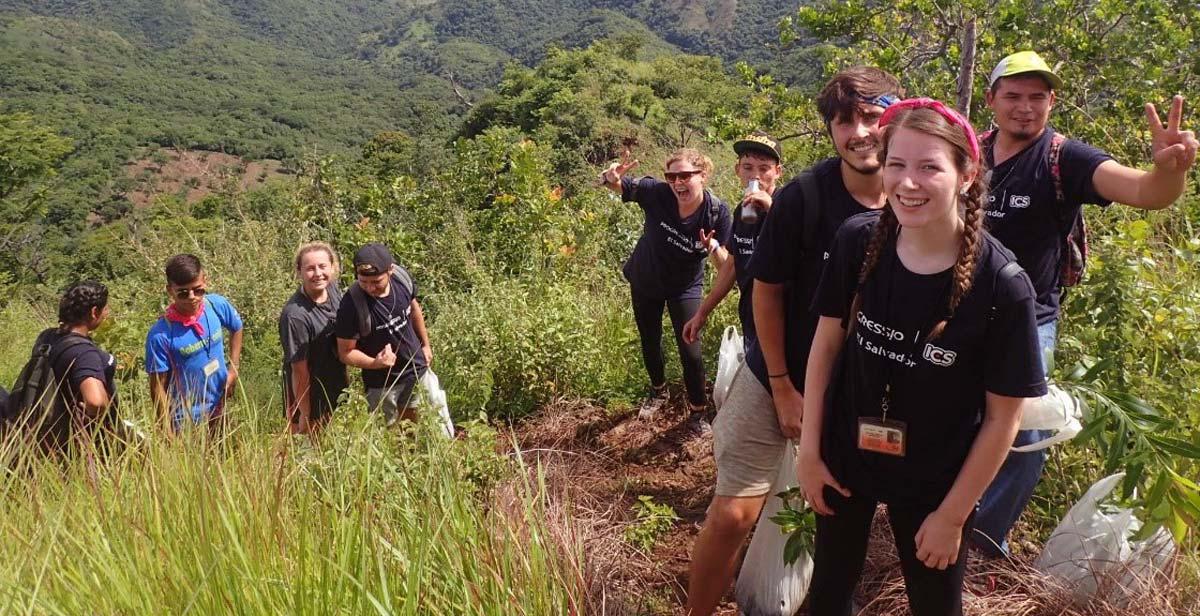International Volunteer Day is on the 5 December each year. It was created by the United Nations in 1985 to celebrate volunteers and their contributions in their communities and around the world. All over the world, hundreds of millions of people volunteer each year, spending their spare time sharing skills and improving lives. Together and individually, volunteers are acting as catalysts for positive change, so having a day to share their successes and promote their work is essential. I’m going to take this opportunity to share some of my experiences and clear up a few misconceptions surrounding volunteering!
Since volunteering in El Salvador in the summer, I’ve become more conscious of the bad associations with volunteerism (volunteering abroad). It started when I began fundraising, many people were sceptical about donating to an ‘international development’ charity, with views that they were just funding holidays for young people. To an extent, I can see where they are coming from, many illegitimate companies have set up questionable schemes to volunteer abroad. However, when run properly and supervised by governments or other professionals, like International Citizen Service (ICS) is, these programmes can be truly worthwhile. Even since returning, I’ve felt like some people still think of the work we did over the summer was a bit of a joke, which frankly, gets on my nerves! So, in defence of our team’s valiant efforts and successes, I thought I’d outline what we did and the advantages of the programme offered by Progressio ICS.
I spent the summer in Arcatao, a small town in the mountains on the border between El Salvador and Honduras. Although now a very peaceful village, this town suffered greatly in the civil war. There was a large group, about 40 of us, half from the UK and half from the town and surrounding villages. Our project involved building bio-structures along the ‘path to peace’. During the civil war, this path led many Salvadorean’s into a military trap, resulting in one of the worst massacres during the war. Before our work commenced it was just a rubble mountain road, the locals wanted to improve the path, to make it a walk of remembrance and reflection. It was also hoped the path would attract people from around the country, bringing more wealth to Arcatao. Our work was divided by this and working with a local NGO, CBC, to tackle issues surrounding climate change within the community. This involved awareness workshops in schools and the office, a Community Day teaching children about the effects of global warming, the creation of a photo exhibition to illustrate changes in the community, a video filmed with locals to allow them to share their views and experience surrounding climate change, tree planting with the community, and many town clean ups/recycling schemes.
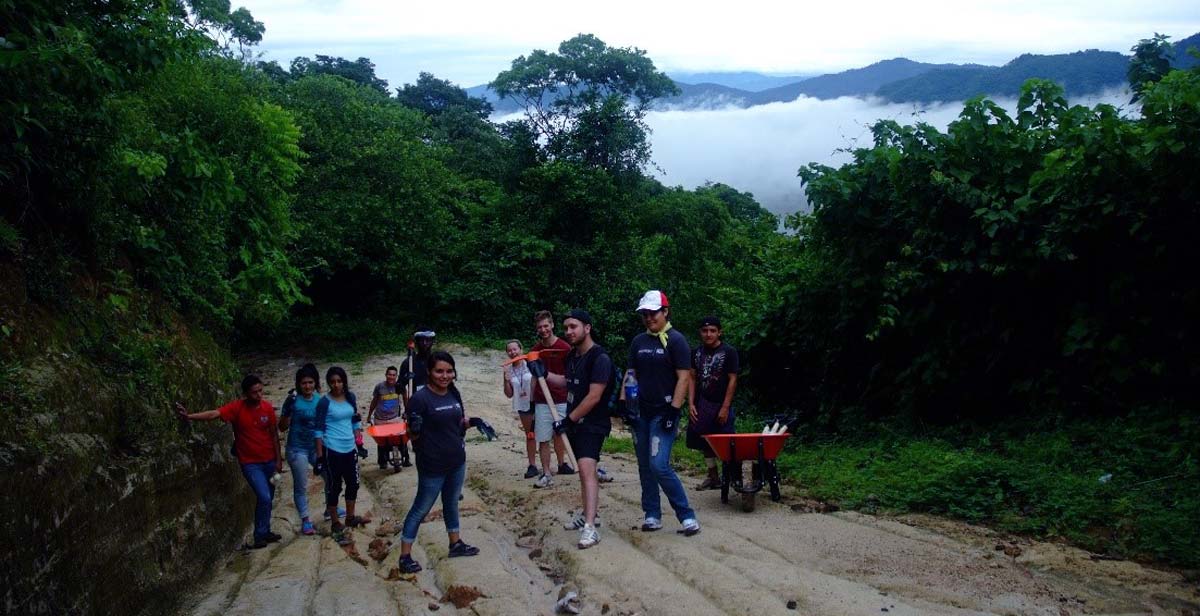
We had a fairly busy schedule, because of this most days we found ourselves putting in extra hours. We even found ourselves working full days on Saturdays, which were scheduled as half days. Our average day started at 7.30am with the walk to the Sumpul Centre where we ate and ended around 7/8pm - that's a 12-hour day. The working day was only actually 8am-5pm, it was just longer due to the fact our meals were served in town and not in our host homes. We were not allowed to walk around town unless we had a national volunteer with us for safety purposes, so going home in breaks/before dinner wasn’t usually feasible. When we got in from work it was usually just a quick (COLD!) shower, wash clothes in the pila and chat before bed (we were exhausted!). Starting to sound less like a holiday?
The point is we were all working our asses off in the hot sun, all day (nearly), everyday! I've made us sound like overworked donkeys, this was not the case. We were really well looked after by the staff (who even sent us Gatorade from the capital to make sure we didn't get dehydrated in the heat) and had plenty of breaks and snacks to keep us going, along with motivating tunes and lovely company. We were even given mattresses to have group naps at lunch time! Anyway, we continued with this routine for pretty much the whole cycle, with only Sundays really for free time, which we had to spend together in an organised fashion because of the rules regarding safety. So, no, volunteering on an international development programme is not a holiday. However, I would rate it much more highly and I think my fellow volunteers would agree!
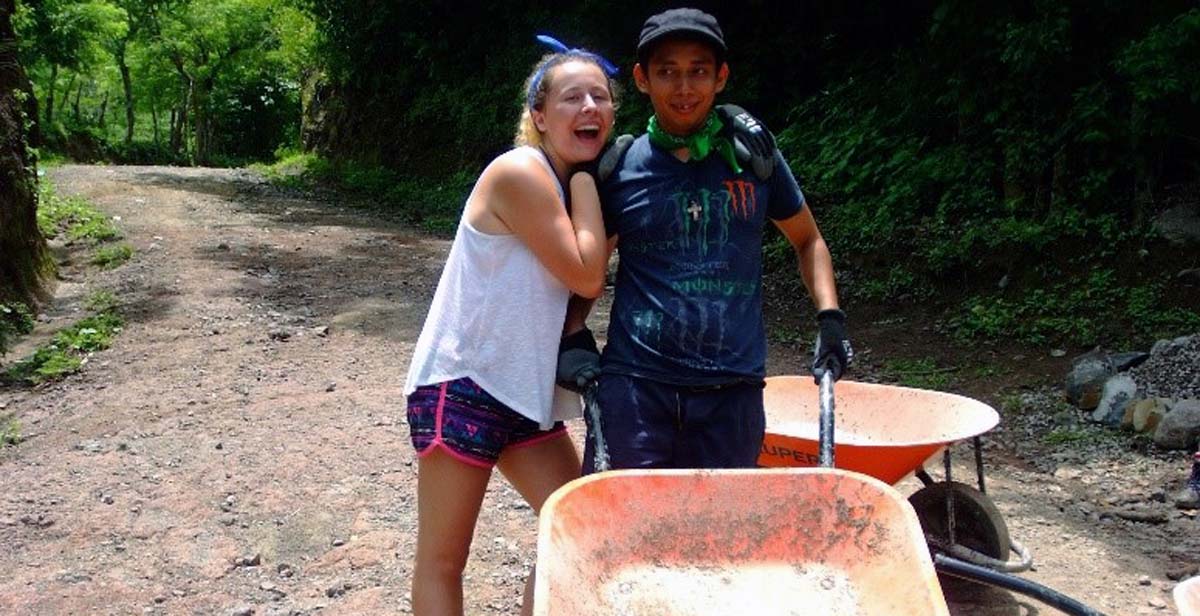
When people question the amount of money it required to send each of us away, it does seem like a lot, however, as well as helping to improve a community it is a highly educational experience. I will treasure, remember and definitely use the things I learnt whilst away far more than anything in my degree! Some of the lessons people learn from these kind of experiences are really quite fundamental for personal development, which the educational system some what fails to provide. So, it’s pretty good value if you view it as an additional educational experience, as well as a voluntary placement working to improve communities overseas.
So, what did we actually learn?
- It seems easiest to start with the obvious. We all learnt a lot about bio-construction and the environment. How to use a pickaxe, make kob, make bottle-bricks... and ultimately construct a small house!
- Both groups learnt a fair bit of the others language - Ahora hablo un poco Español!
- We all learnt many of the essential skills employers look for, such as how to work in a team, how to communicate effectively, how to monitor and evaluate, how to adapt to unexpected situations, how to organise and carry out public events and activites, etc...
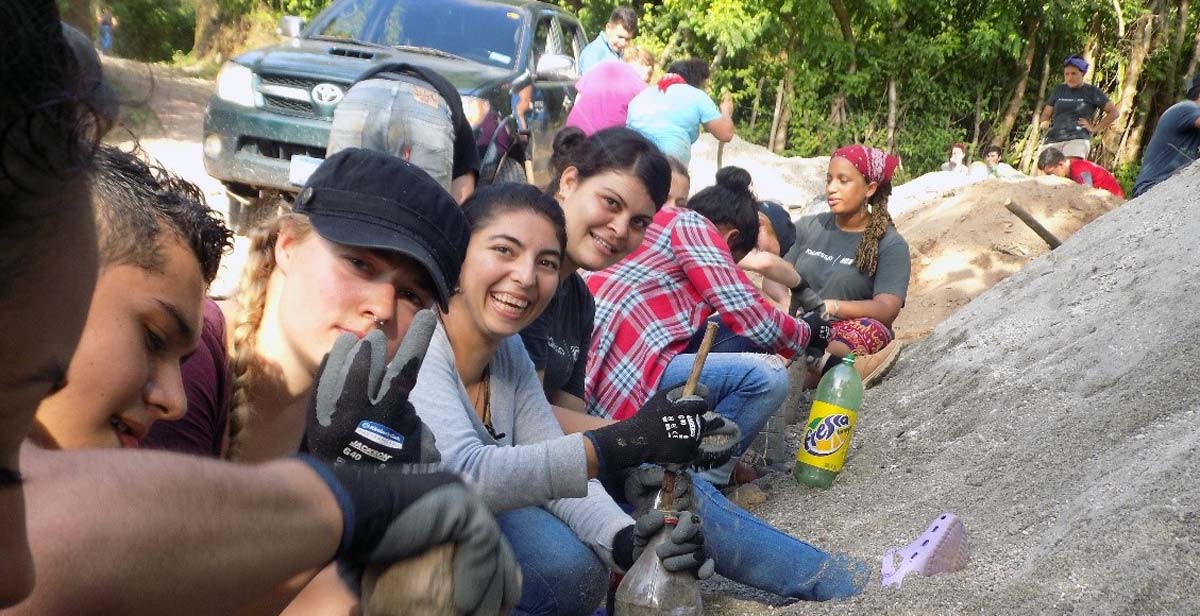
- I think it’s safe to say many people learnt a lot about themselves. I noticed a lot of self-reflection and analysis. People overcame fears, let go of anxieties, improved their attitudes, increased their motivation and increased their confidence and selfless-ness. We all succeeding in generally being very positive, which allowed us to embrace our skills and strengthen our weaker skills. Being able to step back from reality and just 'be' for a bit does a hell of a lot of good for mental well-being, and I think most people benefited from this, improving their understandings of themselves.
- We all taught each other subconscious lessons, for example, I now compliment people more and am more open and positive! We had some interesting discussions, hearing so many different points of view really challenged my usual way of thinking. I think it is very important to be able to learn to see different points of view and consider situations fully before jumping to conclusions or making decisions. Some people I met, including our lovely ladies in San Salvador, had some really inspiring views on the world.
- To pass time we often organised group activities to share personal skills. We had many language lessons (Spanish, English and Mandarin), dance lessons (salsa, hip-hop and reggaetón), the national volunteers taught us how to make all sorts of cool things out of recycled materials and cotton, we taught them card games, we also exchanged our favourite childhood games like ‘What’s the time Mr. Wolf’.
- The national volunteers were very inspired by this opportunity made available to them. Usually they would just spend their time working for their parents, mainly in agriculture and construction. However, ICS gave them the opportunity to do something extremely out of the ordinary, something exciting and with the opportunity to make lots of new friends! All the youths wanted to be involved. Every day we had local kids and young adults in the office joining in with games and wanting to help us with our projects. When the interviews for the new cycle were opened, the response was tremendous! I think everyone wanted to get involved - and that is not an understatement! So, one of our main objectives to reach out, inspire and involve the local youths was a massive success. Hopefully they will continue to work together to keep their community more environmentally friendly.

- We made friends for life. I know I speak to volunteers, from the UK and El Salvador, everyday still. Some of us are trying to plan a trip to visit them in the summer, fingers crossed! I had such an amazing time with our group, we got on so well and time flew because we spent all day, every day joking around! Meeting such a fantastic and diverse group of people who don’t speak the same language and still forming such strong friendships was honestly amazing... I actually cried for three days before we left because I was so sad to say goodbye!
- My host family were also wonderful. The two ladies of the house my mum, Annabel, and sister, Roxanna, were such incredible strong women. They held very liberal views compared to many people in the community and helped me take each day as it comes and to smile even when things don’t go to plan… they also taught me how to make the best papusas in Arcatao!
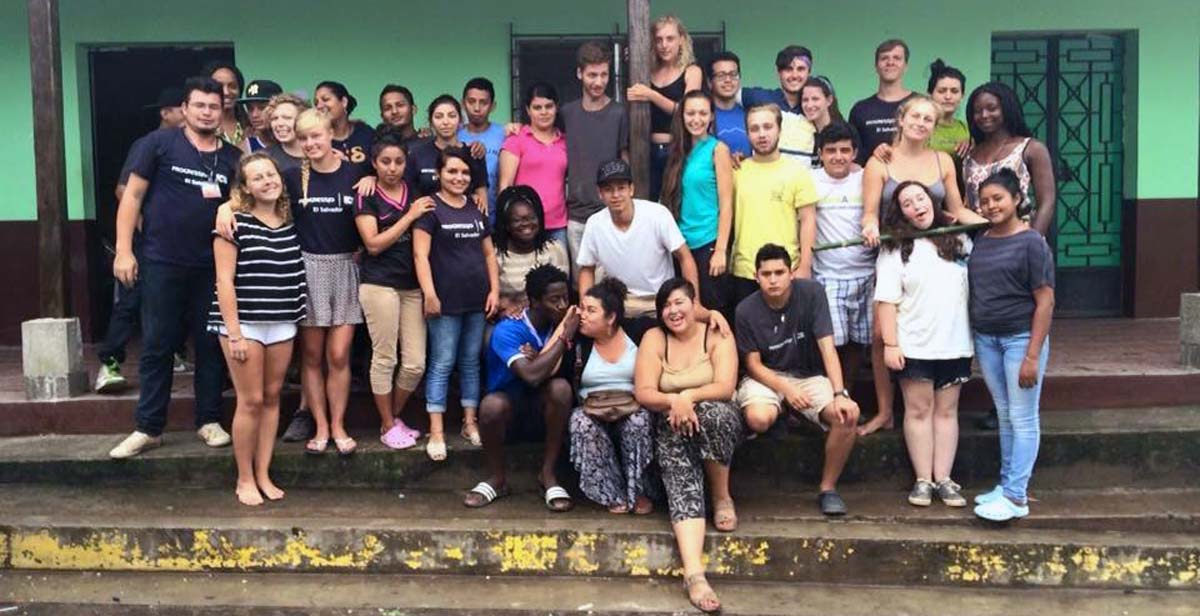
So, there may be some faults or imperfections in the system, but all international development work is a slow process and it is very hard to allocate money to the right places for maximum efficiency. Even the professionals struggle to meet targets and implement change. We were constantly assessing and reviewing our work to check we were meeting the targets set out for us. As well as doing this as a group day-to-day or a team weekly, we even had the big guns (AKA Carmen and Susy from Progressio) visiting from San Salvador to do official reports on our progress every three weeks or so. Therefore, the idea that volunteerism involves sending a group of clueless young people abroad to aimlessly try and impose their values upon a community are far from right. It was quite the opposite. We immersed ourselves in their way of life - I’m listening to Spanish music as I write this blog! We ate their cuisine, spoke their language, played their games and followed their lead when working. The majority of activities/projects were led by the nationals, we were helping them to achieve what they thought would be most beneficial in their community. So, in Arcatao, Progressio’s vision to support local people to empower themselves holds true, and that’s what international development should be about!
Written by ICS Alumni Katherine Maloney (July - September 2016 cycle, El Salvador)


